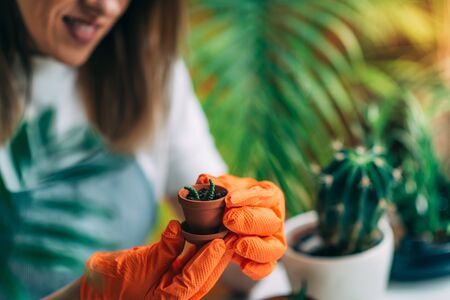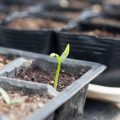Current Landscape of Peat-Free Compost in the UK
The transition towards peat-free compost has become a defining feature of the British gardening scene, shaped by growing environmental awareness and regulatory change. Over the past decade, the UK government and leading horticultural organisations have championed the move away from traditional peat-based products due to concerns about carbon emissions and ecosystem degradation associated with peat extraction. As a result, the market for peat-free compost alternatives has expanded significantly, offering British gardeners a diverse array of options that cater to both amateur enthusiasts and professional landscapers.
Adoption rates for peat-free compost continue to rise steadily, buoyed by major retailers committing to phase out peat products and increased consumer demand for sustainable gardening solutions. Recent industry surveys indicate that over 60% of British gardeners have tried or regularly use peat-free compost, with many reporting positive experiences regarding plant health and growth performance. However, prevailing attitudes remain mixed; while a substantial portion of gardeners embrace these eco-friendly alternatives, some still express reservations concerning consistency, cost, and suitability for specific plant types. These concerns highlight the ongoing need for innovation and education within the sector as it moves towards a fully peat-free future.
2. Driving Forces Behind Innovation
The evolution of peat-free compost in the UK is being shaped by a convergence of environmental policies, shifting consumer preferences, and robust industry commitments. These driving forces are accelerating the transition from traditional peat-based products to innovative, sustainable alternatives.
Environmental Policies Shaping the Market
In response to growing concerns about habitat loss and carbon emissions linked to peat extraction, the UK government has implemented a series of regulations aimed at reducing and eventually banning peat use in horticulture. These legislative measures have set clear targets for phasing out peat in both professional and amateur gardening sectors, compelling manufacturers and retailers to explore alternative materials. The table below outlines key policy milestones:
| Year | Policy/Regulation | Impact on Industry |
|---|---|---|
| 2024 | Ban on retail sales of peat compost | Shift towards alternative substrates in consumer markets |
| 2026 (proposed) | Ban on peat use in professional horticulture | Accelerated R&D for large-scale peat-free solutions |
| Ongoing | DEFRA funding for sustainable compost innovation | Increased investment in research and pilot projects |
Consumer Demand: A Catalyst for Change
British gardeners have become increasingly eco-conscious, seeking products that align with their values of sustainability and biodiversity protection. This rising demand is reflected in the rapid growth of the peat-free compost market, as consumers favour brands offering transparent sourcing and lower carbon footprints. Retailers have responded by expanding their ranges of certified peat-free products and providing clearer labelling to guide purchasing decisions.
Industry Commitments: Leading by Example
The horticultural industry has taken proactive steps to support the move away from peat. Leading producers and garden centres have pledged to phase out peat entirely from their supply chains ahead of regulatory deadlines. Collaborations between growers, researchers, and environmental organisations are fostering knowledge exchange and best practices, accelerating innovation in compost formulation and quality standards.
The Synergy of Forces Driving Progress
The interplay between governmental directives, consumer advocacy, and industry leadership is creating a robust framework for sustained innovation in peat-free compost. As these forces continue to converge, British gardeners can expect a new generation of products that deliver both high performance and ecological responsibility.

3. Emerging Materials and Production Techniques
As British gardeners look towards a more sustainable future, the development of innovative materials and advanced production methods is at the forefront of peat-free compost evolution. The sector is witnessing a significant shift from traditional peat-based products to alternatives that are not only environmentally responsible but also tailored for the unique demands of UK soils and climate.
Novel Raw Materials: A Greener Foundation
The adoption of coir, wood fibre, and composted green waste is revolutionising the composition of peat-free composts. Coir, derived from coconut husks, offers excellent moisture retention and aeration, making it suitable for seed starting and potting mixes. Wood fibre, produced through sustainable forestry practices, provides structural stability and encourages strong root development. Meanwhile, composted green waste—collected from local councils and garden recycling schemes—closes the loop by transforming organic waste into nutrient-rich growing media, reducing landfill pressures and promoting circular economy principles.
Innovative Manufacturing Processes
Modern production techniques are instrumental in enhancing both the quality and consistency of peat-free composts. Advanced screening technologies ensure a fine, even texture free from contaminants, while precision blending allows manufacturers to tailor nutrient profiles for different plant types and gardening applications. Some producers are experimenting with biological additives such as mycorrhizal fungi or beneficial microbes to further boost plant health and soil vitality. These innovations help mitigate historical concerns around variable quality in early peat-free blends.
Adapting to British Conditions
Recognising the specific needs of British gardens—ranging from clay-heavy soils in the North to sandy substrates in coastal areas—manufacturers are increasingly customising their products. This localisation effort ensures that new composts support healthy growth across diverse regional conditions, addressing common challenges like water management and nutrient availability.
Towards Commercial Scalability
The integration of these emerging materials and processes into large-scale production is key to meeting growing demand. Investments in research and infrastructure are enabling producers to maintain affordability without compromising environmental credentials. As these advancements become mainstream, British gardeners can expect more reliable, effective, and sustainable peat-free options on shelves nationwide.
4. Performance and Plant Health Considerations
The transition to peat-free composts has prompted British gardeners to scrutinise how these alternatives support plant health and overall garden performance. With the UK’s diverse gardening environments, ranging from compact urban plots to expansive allotments, there are legitimate concerns regarding nutrient balance, moisture retention, and the efficacy of new compost formulations. Recent innovations in peat-free composts have directly addressed these challenges, and further advancements are set to refine these benefits for British horticulture.
Nutrient Balance: Adapting to Plant Needs
Early generations of peat-free composts often struggled with inconsistent nutrient profiles, leading to variable plant growth and increased reliance on supplementary feeds. Modern research has shifted towards blending sustainable materials—such as coir, bark fines, green waste, and wood fibre—with precisely formulated organic or slow-release fertilisers. This approach ensures a more predictable nutrient release pattern tailored for the typical growing seasons in the UK.
| Compost Base Material | Nutrient Profile | Suitability for UK Plants |
|---|---|---|
| Coir-Based Mixes | Moderate NPK, low trace elements | Good for seedlings and potting; may need supplements |
| Bark Fines & Green Waste | Rich in micronutrients, variable NPK | Well-suited for shrubs and perennials |
| Wood Fibre Blends | Low nitrogen, good aeration | Best for mixing with richer substrates or feeds |
Moisture Retention: Coping with UK Weather Variability
The unpredictable British climate demands compost that can retain sufficient moisture during dry spells while draining well in wet conditions. Future-focused peat-free blends are leveraging biochar, hydrogels, and advanced cellulose fibres to enhance water-holding capacity without compromising aeration. Some commercial products now include moisture-indicating granules, helping gardeners maintain optimal watering schedules—an innovation particularly relevant for container gardening and hanging baskets prevalent across the UK.
Efficacy Across Different Garden Contexts
Peat-free composts are increasingly being engineered for specific applications—seed sowing, young plant raising, vegetable beds, or ornamental borders—addressing performance gaps identified by amateur and professional gardeners alike. For example:
- Seed Sowing: Fine-textured blends promote uniform germination and reduce damping-off risks.
- Pots & Containers: Improved water management features support thriving displays throughout fluctuating weather patterns.
- Allotments & Raised Beds: Robust nutrient profiles cater to heavy feeders like tomatoes and courgettes.
The Road Ahead: Continuous Improvement Through Research
Ongoing trials by organisations such as the Royal Horticultural Society (RHS) and industry leaders are generating valuable data on long-term plant performance in peat-free substrates under real British conditions. These insights drive iterative improvements—resulting in composts that not only meet but exceed traditional expectations for yield, bloom quality, and resilience against pests and diseases.
5. Accessibility and Availability for British Gardeners
The ongoing evolution of peat-free compost is set to transform how easily British gardeners can access and afford sustainable growing media. As innovations progress, the industry is poised to address historic challenges around cost, distribution, and suitability for diverse UK climates and soils.
Affordability: Closing the Price Gap
Historically, peat-free alternatives have often carried a price premium compared to traditional peat-based composts. However, technological advancements in sourcing and processing organic materials—such as green waste, coir, bark, and biochar—are likely to improve economies of scale. British manufacturers are investing in streamlined production methods that reduce overheads, making it feasible for retailers to offer competitively priced peat-free products. Over time, this should make sustainable choices more accessible to budget-conscious home gardeners and community projects alike.
Retail Reach: Expanding Access Nationwide
Wider retail adoption is another anticipated outcome of innovation in peat-free compost. Major garden centres, DIY chains, and independent nurseries across the UK are expanding their ranges to include new formulations tailored for British gardens. Furthermore, online platforms are enabling even those in rural or remote locations—from the Scottish Highlands to Cornish coastal villages—to source a variety of specialist mixes. With improved logistics and wider product availability, peat-free compost will become a mainstream option for all types of growers.
Regional Suitability: Customised Solutions for UK Conditions
One of the most promising developments is the creation of regionally-adapted blends that cater to the unique soil characteristics and climate variations found throughout Britain. Research partnerships between manufacturers and local horticultural institutions are driving the development of products optimised for specific environments—be it heavy clay soils in Yorkshire or sandy loams in East Anglia. This localisation ensures that gardeners nationwide can expect reliable results when switching to sustainable alternatives.
Towards Equitable Gardening Choices
Ultimately, advances in affordability, retail reach, and regional suitability will empower a broader spectrum of British gardeners to adopt peat-free compost without compromising on quality or convenience. As these innovations gather momentum, the vision of a greener, more sustainable gardening culture across the UK moves ever closer to reality.
6. Looking Ahead: The Role of Education and Community
As the horticultural landscape in Britain moves decisively towards peat-free compost, the importance of education and community engagement cannot be overstated. Innovative products and practices are only as effective as the gardeners who use them, making knowledge-sharing and local support critical to a successful transition.
Initiatives for Knowledge Sharing
Across the UK, gardening organisations, allotment societies, and environmental charities are launching targeted initiatives to bridge the information gap. Workshops, demonstration gardens, and online webinars are equipping both novice and seasoned gardeners with practical skills for utilising new peat-free solutions. These efforts demystify innovative compost blends, explain their benefits, and provide hands-on guidance for integrating them into existing gardening routines.
Access to Resources
The accessibility of reliable resources is another key factor. Local councils and community groups are increasingly distributing literature, trial kits, and troubleshooting guides tailored to the British climate and soil conditions. Garden centres are also stepping up, offering in-store advice sessions and dedicated displays showcasing the latest sustainable compost options. Such resources empower gardeners to make informed choices without feeling overwhelmed by change.
Community Support Networks
Perhaps most significantly, peer-to-peer networks are flourishing across neighbourhoods and digital platforms alike. Gardeners’ forums, social media groups, and informal meetups foster a spirit of collaboration, where individuals can share experiences—successes as well as setbacks—with peat-free products. This sense of collective endeavour not only accelerates learning but also helps dispel myths and build confidence among those hesitant to try new approaches.
Sustaining Momentum Through Collaboration
The journey towards widespread adoption of innovative peat-free compost will be shaped by an ongoing commitment to education and community support. By pooling expertise, sharing local insights, and championing sustainable practices together, British gardeners can ensure that future innovations translate into healthier gardens—and a more resilient environment—for generations to come.


